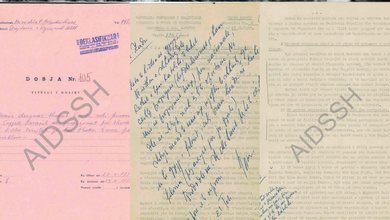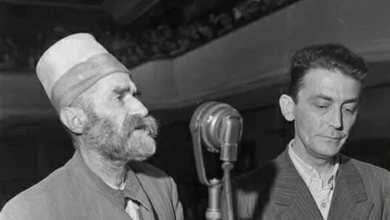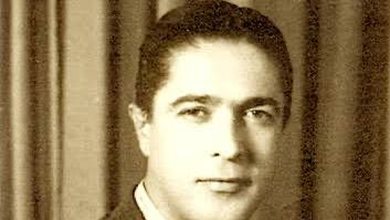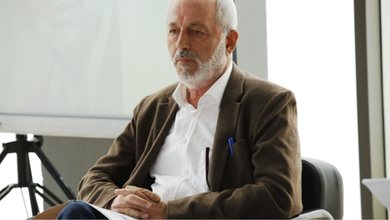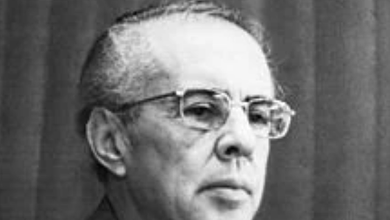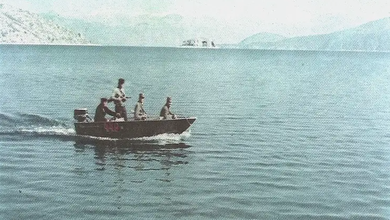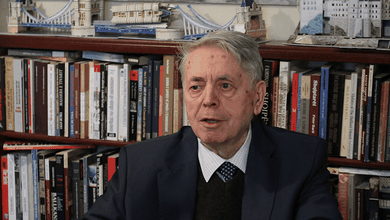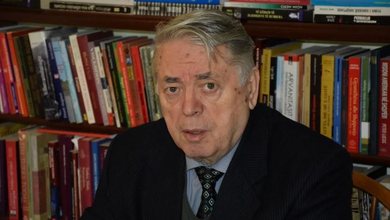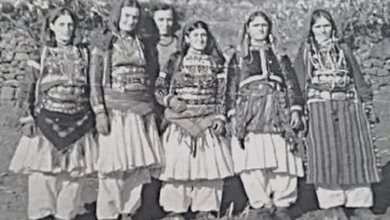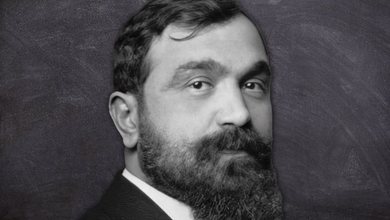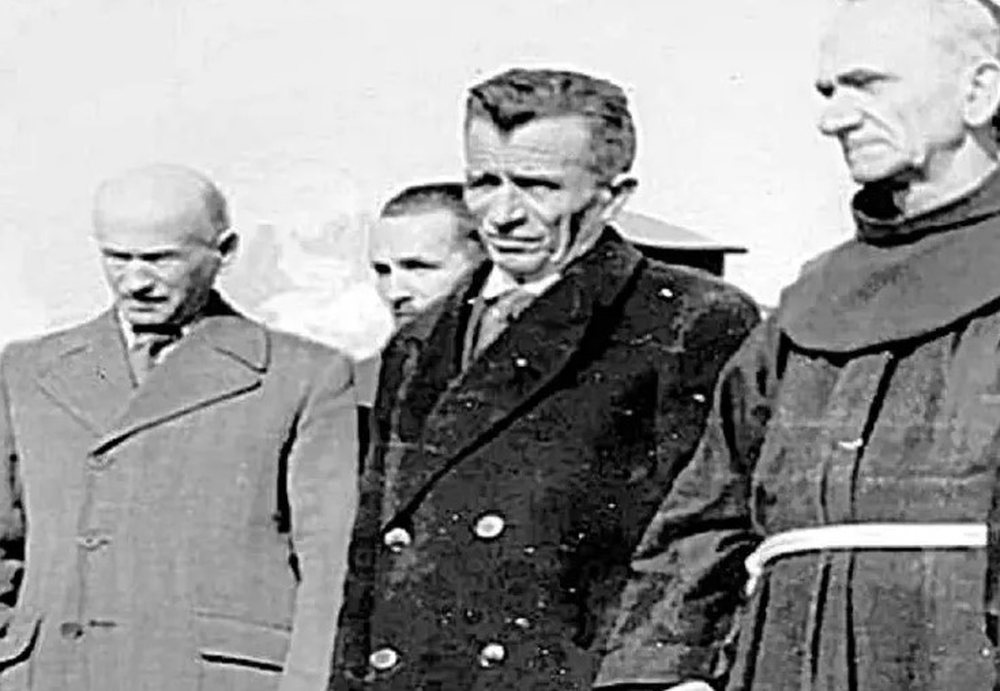
On the occasion of the anniversary of the birth of Father Anton Harapi, the renowned historian and military scholar, Major General Sandër Lleshi, for the first time provides the public with a collection of facts that shed light on the political engagement of Father Anton Harapi, in the Regency Council. In response to the famous prayer for Albania by Pope John Paul II, in a statement by the Albanian Telegraphic Agency, dated 10.10.1980, at 09.55, broadcast in English, it is stated: “In Albania, religion has lost the battle in the ideological and spiritual field once and for all. For this reason, the crocodile tears have been received in a completely different way than what the Vatican monarch had hoped for.
If the Popes of Rome continue to defend a cleric convicted by the court of our people because he was an agent or collaborator of the fascist and Nazi occupiers, we would say that this discredits them even more. …!
Father Anton Harapi and others like him, following the example of Pope Pius XII, who gave his blessing to the Duce and Hitler, put themselves at the service of the foreign invaders and they cannot be any different from all the collaborators of the invaders in Albania.
INVOLVEMENT IN POLITICAL LIFE
Father Anton Harapi's decision to become politically involved in the Regency Council in 1944, after approval by the Catholic Church authorities, appears to have been one of the most difficult decisions of his life. In general, the political-military situation in Albania was very complicated.
The capitulation of Italy and the state vacuum created after it, the considerable number of Italian troops remaining in Albania without a unified command, the interests of the Allied armies in taking control of the areas occupied by Italy, as well as the German interests in preventing the entry of Allied troops into the Balkans, characterized the overall picture.
Added to this was the presence of a growing partisan movement, along with the danger of internal anarchy and civil war. Neubacher also describes the complexity of this situation in a telegram dated 12.09. 1944, to the German Reich Foreign Ministry, where he writes, among other things:
"The events of recent months and the intense English propaganda in Old Albania (today's Albania, without Kosovo, S.LL.'s note), especially in the capital among the majority of the population, have created the conviction of our defeat. Our initiative for the creation of an independent Albania was met with formal, even legal, skepticism.
It was clear that these men, above all, were concerned that by approaching Germany, now on the verge of Allied victory, they would endanger their own safety and property, as well as the interests of the country. For this reason we have taken steps to create a national committee, with a different composition than we initially thought."
It was precisely at such a time and situation that Father Anton Harapi made a decision outside the normal trend of the time, that is, sublime. He accepted an official position as a member of the Regency Council, in a completely turbulent time and in a country that was on the edge of the abyss. But how is that possible?
It seems that he had foreseen his fate and in his speech in Parliament, on the occasion of his swearing in as a member of the High Council of Regency, he gives an answer to all those "smart people" who understood the danger of the situation, but apparently also the answer to future communist judges, when he declared:
"I was forced to choose between two things: either I would commit a crime by accepting this office, or I would show weakness by leaving. I decided to commit a crime: or – as Albanians who want to keep themselves pure say – I wanted to compromise myself."
Like many moments in Albania's history, its occupation by Germany needs to be studied in a complex manner in order to reflect historical facts stripped of ideological commentary.
At least one thing is clear: From the study of numerous German documents of the time, regarding this issue, the political effort is evident to consider the case of Albania somewhat differently from many other occupied countries, for reasons that were very briefly addressed at the beginning of this research and analytical article.
Within the framework of this specific political treatment, by order of Hitler, dated 03.10.1943, the position of “All-Powerful German General in Albania” was created. The provisions for the implementation of this order of the same date stated:
"The German Reich has recognized the newly established National Committee as the government of the independent and friendly state of Albania. By order of the Führer, the position of 'German General Plenipotentiary in Albania' is created, to represent the German Wehrmacht, to the Albanian Government. The establishment of a German military administration in the territory of the Albanian State is therefore not envisaged."
In this general political, military and social background of Albania, it is somewhat easier for anyone to understand the motives of Father Anton Harapi's decision to engage in the highest structure of the Albanian State.
In Neubacher's book, it is explained that the political scene of that time was characterized by the antagonism; Mithat Frashëri - Xhaferr Deva, or as Neubacher says; "Old Albania-New Albania", leaving no special space for any active role of an executive nature, for Father Anton Harapi.
Essentially, in the book it seems as if the person of Father Anton Harapi served Hermann Neubacher mainly to personify his sympathy for the high virtues of the Albanian people. Neubacher has preserved the chapter on Albania from his book dedicated to the Balkans for Father Harapi:
"The same fugitive told me about the end of Father Anton Harapi. But I must add something to his story beforehand. When our retreat from Albania began, I asked Father Anton to leave the country immediately and offered him my plane for this. He thanked me and sent me word that God had assigned him a place, and if it were God's will, he would have to die where his priestly duty called him.
The man from Durrës told me that his friends were keeping him hidden. The communists, who were looking for him everywhere, entered the house where he was staying. They did not find him. When they were leaving the house, they saw a denture in a glass jar and asked to know who it belonged to!
When they began to mistreat the people of the house, who were trying to get out of the situation, Father Harapi came out of the place where he had been hiding and handed himself over to the government 'hunters.' The man who told me this story told me that he had gone with a calm and clear mind to the triangle.
Father Anton Harapi came from Northern Albania, he had received his secondary education in the friary schools in Merano and Hall in Tyrol. In Rome he had studied theology. Before his end came, he had seen once again the places of his early youth. His departure from Tirana at that time is to be remembered!
Further, Neubacher closes his chapter on Albania with this episode: “It was the end of June 1944, when I, fed up with the government crisis, left Tirana. Due to the proximity of the English bombers on the other side of the Otranto Channel, I could only travel in the dark.
The plane had started to move on the runway with lights, when the crew, with screams, managed to stop the vehicle. – “What is it, who is there”? “Father Harapi”! And the little Franciscan climbed into the belly of the plane and stood laughing in the small passenger cabin.
"I can't stand politics anymore! I'll fly with you!"
The Heinkel surged forward, twisting over valleys and mountain ranges, wandering over the wilderness on whose cliffs the first red glow of the rising sun had begun to shimmer.
Father Antony, who was sitting opposite me, wrapped in his robe, took out of a bag of straw, which was his only luggage, his prayer book and began to pray. For several days he was my friend in Belgrade.
I still see before me the little ascetic creature, with a brown face as if carved in wood, from which rose a large, cheerful nose, holding the prayer book in his hands and wandering up and down, amidst the beauty of the flowers of my garden.
Later Father Anthony traveled to Vienna and then to Tyrol. After a few weeks he returned to Albania, where death awaited him. No revolution can erase the memory of such a man. May the eternal light, which he served, illuminate him!
And of course it would happen that way. At a time when many of the state authorities, representatives of politics, economy, and culture of the country, sought all possible alternatives to leave Albania, which was acutely threatened by the danger of communism, Father Anton Harapi behaves again and again differently, contrary to the general trend of the intelligent, contrary to reasonable advice, without calculation for safety.
He returns to his homeland, where in 1946 the punishment of those he had forgiven in 1943 and who he would forgive today, if he were alive./ Memorie.al/


